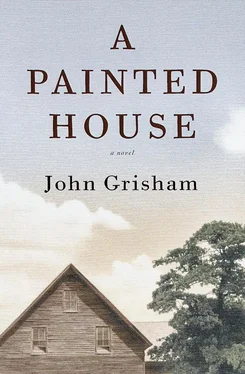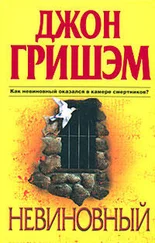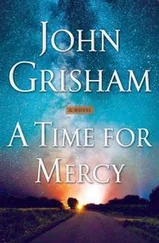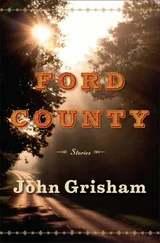At dusk we moved to the front porch, which was now even quieter. The Cardinals were a distant memory, and we rarely listened to anything else after supper. Pappy didn’t want to waste electricity so I sat on the steps and looked out at our front yard, still and empty. For six weeks it had been covered with all manner of shelter and storage. Now there was nothing.
A few leaves dropped and scattered across the yard. The night was cool and clear, and this prompted my father to predict that tomorrow would be a fine opportunity to pick cotton for twelve hours. All I wanted to do was paint.
I glanced at the clock above the stove as we ate. It was ten minutes after four, the earliest breakfast I could remember. My father spoke only long enough to give his weather forecast — cool, clear, not a cloud anywhere, with the ground soft but firm enough to pick cotton.
The adults were anxious. Much of our crop was still unharvested, and if it remained so, our little farming operation would fall further into debt. My mother and Gran finished the dishes in record time, and we left the house in a pack. The Mexicans rode with us to the fields. They huddled together on one side of the trailer and tried to stay warm.
Clear, dry days had become rare, and we attacked this one as if it might be the last. I was exhausted by sunrise, but complaining would only get me a harsh lecture. Another crop disaster was looming, and we needed to work until we dropped. The desire for a brief nap arose, but I knew my father would whip me with his belt if he caught me sleeping.
Lunch was cold biscuits and ham, eaten hurriedly in the shade of the cotton trailer. It was warm by midday, and a siesta would have been appropriate. Instead, we sat on our picking sacks, nibbled our biscuits, and watched the sky. Even when we talked, our eyes were looking up.
And, of course, a clear day meant that the storms were on the way, so after twenty minutes of lunch, my father and Pappy declared the break to be over. The women jumped up as quickly as the men, anxious to prove they could work just as hard. I was the only reluctant one.
It could’ve been worse: The Mexicans didn’t even stop to eat.
I spent the tedious afternoon thinking about Tally, then Hank, then back to Tally. I also thought about the Spruills and envied them for escaping. I tried to imagine what they would do when they arrived home and Hank wasn’t there waiting for them. I tried to tell myself that I didn’t really care.
We had not received a letter from Ricky in several weeks. I had heard the adults whisper about this around the house. I had not yet sent my long narrative to him, primarily because I wasn’t sure how to mail it without getting caught. And I was having second thoughts about burdening him with the Latcher news. He had enough on his mind. If Ricky were home, we’d go fishing and I’d tell him everything. I’d begin with the Sisco killing and spare no details — the Latcher baby, Hank and Cowboy, everything. Ricky would know what to do. I longed for him to come home.
I don’t know how much cotton I picked that day, but I’m sure it was a world record for a seven-year-old. When the sun fell behind the trees along the river, my mother found me, and we walked to the house. Gran stayed behind, picking as fast as the men.
“How long they gonna work?” I asked my mother. We were so tired that walking was a challenge.
“Till dark, I guess.”
It was almost dark when we got to the house. I wanted to collapse on the sofa and sleep for a week, but my mother asked me to wash my hands and help with supper. She made corn bread and warmed up leftovers while I peeled and sliced tomatoes. We listened to the radio — not a word about Korea.
In spite of a brutal day in the fields, Pappy and my father were in good spirits when we sat down to eat. Between them, they had picked eleven hundred pounds. The recent rains had driven up the price of cotton in the Memphis market, and if we could just get a few more days of dry weather, then we might survive another year. Gran listened from a distance. She listened but did not hear, and I knew she was off in Korea again. My mother was too tired to talk.
Pappy hated leftovers, but he still thanked the Lord for them. He also gave thanks for the dry weather and asked for more of it. We ate slowly; the day’s exhaustion finally settled in. Conversation was soft and short.
I heard the thunder first. It was a low rumble, far away, and I glanced around the table to see if the adults had heard it, too. Pappy was talking about the cotton markets. A few minutes later the rumbling was much closer, and when lightning cracked in the distance, we stopped eating. The winds picked up, and the tin roof on the back porch began to gently rattle. We avoided eye contact.
Pappy folded his hands together and rested his elbows on the table as if he might pray again. He had just asked God for more good weather. Now we were about to get another drenching.
My father’s shoulders dropped a few inches. He rubbed his forehead and gazed at a wall. The rain began pecking the roof, a little too loudly, and Gran said, “It’s hail.”
Hail meant high winds and fierce rain, and sure enough a storm roared across our farm. We sat at the table for a long time listening to the thunder and rain, ignoring the half-eaten supper before us, wondering how many inches would fall and how long it would be before we could pick again. The St. Francis couldn’t hold much more, and when it spilled out, the crops would be finished.
The storm passed, but the rain continued, heavy at times. We finally left the kitchen. I walked to the front porch with Pappy and saw nothing but a pool of water between our house and the road. I felt sorry for him as he sat in the swing and gazed in disbelief at the waves of water God was sending us.
Later my mother read Bible stories to me, her voice barely audible above the rain on the roof. The tale of Noah and the flood was off-limits. I fell asleep before young David slew Goliath.
The next day my parents announced that they were driving into town. I was invited — it would’ve been too cruel to deny me the trip — but Pappy and Gran were not included. It was a little family outing. Ice cream was mentioned as a possibility. Thanks to Cowboy and Tally, we had some free gasoline, and there was nothing to do around the farm. Water was standing between the rows of cotton.
I sat in the front with them and paid close attention to the speedometer. Once we turned onto the main highway and headed north toward Black Oak, my father finished shifting and sped up to forty-five miles an hour. As far as I could tell, the truck ran the same as it did at thirty-seven, but I wasn’t about to mention this to Pappy.
It was oddly comforting to see the other farms idled by the rain. No one was trudging through the fields, trying to pick. Not a single Mexican could be seen.
Our land was low, prone to early flooding, and we’d lost crops before when other farmers had not. Now it appeared as if everybody was getting soaked in equal measure.
It was midday with nothing to do but wait, and so families were gathered on porches, watching the traffic. The women were shelling peas. The men were talking and worrying. The children were either sitting on the steps or playing in the mud. We knew them all, every house. We waved, they waved back, and we could almost hear them say, “Reckon why the Chandlers are headin’ to town?”
Main Street was quiet. We parked in front of the hardware store. Three doors down at the Co-op, a group of farmers in overalls was engaged in serious conversation. My father felt obliged to report there first, or at least to listen to their thoughts and opinions on when the rain might end. I followed my mother to the drugstore, where they sold ice cream at a soda fountain in the rear. A pretty town girl named Cindy had worked there for as long as I could remember. Cindy had no other customers at the moment, and I received an especially generous helping of vanilla ice cream covered with cherries. It cost my mother a nickel. I perched myself on a stool. When it was clear that I had found my spot for the next thirty minutes, my mother left to buy a few things.
Читать дальше












